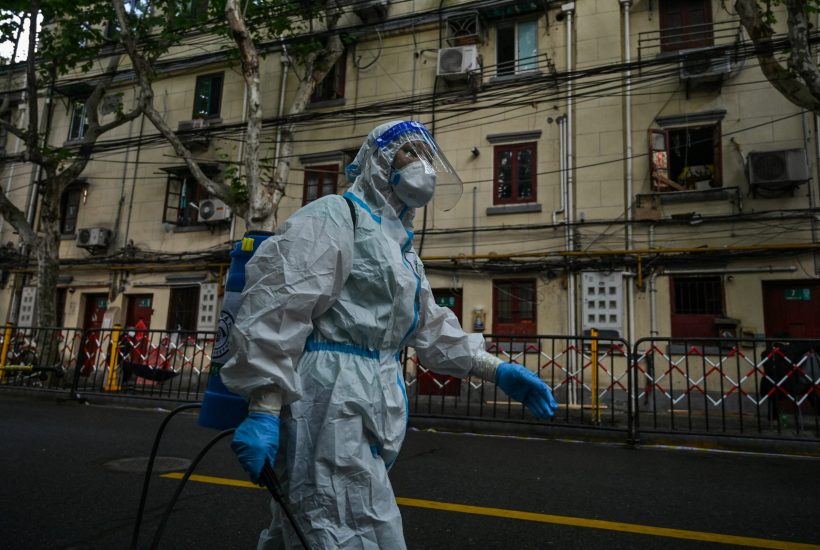There is an unprecedented experiment under way in China as it reshapes its economy to accommodate its zero-Covid strategy. There are two elements to the policy. The more visible one is the harsh lockdowns, enacted most recently in Shanghai – where for the past two months 25 million people were confined to their homes or forced into quarantine holding centres. Though restrictions were officially eased last week, already 2.7 million residents are back under lockdown and confined to their homes following an outbreak in the city. Anyone who catches Covid faces quarantine or hospital.
The second element of China’s zero-Covid policy is the continued closure of its borders. This has been less noticed until now. Yet the slow but steady reopening of some of the most cautious major economies, such as Australia and Japan, along with the reopening of borders in the US, Canada, India and Europe with minimal bureaucracy, means China’s border policy is now a global outlier. It has also attracted international criticism: Tedros Adhanom Ghebreyesus, head of the World Health Organisation, said recently that China’s zero-Covid policy is ‘not sustainable’, sparking a furious backlash from Beijing.
Despite rapidly declining Covid rates, China shows few signs of changing its closed-border policy. Last month, Beijing announced that it will no longer host the 2023 Asian Cup football tournament next summer, suggesting the policy will remain in place for some time yet.
As the 20th Party Congress in October approaches, Xi Jinping will want to ensure there are no obstacles to him obtaining a third term. Zero-Covid is personally associated with him. He can’t change tack now. Fixes such as Chinese-made mRNA vaccines that would provide better protection than the current local jabs, and a rollout that would cover the millions of unvaccinated older people, are still some way off.
But even these measures would not solve the problem. After all, countries with high vaccination rates still can’t guarantee zero-Covid – and China’s leaders are sticking to the official line that the virus must be entirely eliminated. As the country’s health chief, Ma Xiaowei, recently declared: ‘We’re a long way off being able to relax.’
Much of China’s domestic economy is suffering as a result. Year-on-year retail sales dropped by more than 11 per cent in April, a major deterioration from the 3.5 per cent fall in March. A Bloomberg paper last month said that China’s economic growth might fall behind the US’s for the first time since 1976.
A recent top-level meeting demonstrates why the continued closure of China’s borders could be a long-term problem. Last month the Politburo discussed its National Talent Development Plan, which aims to attract ‘the world’s outstanding talents’ including ‘leaders in key scientific fields’.
In the past decade, some of the obstacles that might have been expected to put off such talent from coming to China, such as restraints on academic freedom, have proved less burdensome than anticipated. Well-equipped labs, huge research budgets and attractive salaries, as well as an innovative environment for research in non-political areas, have brought many western-trained scientists to China.
But the lack of mobility now threatens this aspiration because it fundamentally deters international talent in science and business. Leading academics can’t visit China for a few days to supervise a collaborative lab project in medicine or genetics without nearly a month of quarantine first. Before Covid, entrepreneurs interested in investing in Chinese technology would fly over from California for a meeting. Not anymore.
Other CCP measures suggest nervousness about outside connections. It was recently announced that party members or cadres with significant overseas assets will be blocked from promotion. This is partly a move to avoid officials being hit by sanctions, but it will also mean that the most internationalised elements of China’s leadership elite will be the most likely to suffer. Already China’s zero-Covid era is taking its toll on the middle classes.
Meanwhile, the effects of China’s lockdown will continue to batter the global economy. Tesla has halted production in Shanghai because it can’t get hold of essential parts. There’s also a concern that when shipping is finally allowed out of the city, it may cause a flood of goods that further fuels worldwide inflation. The effects of the zero-Covid policy are unpredictable, but it’s certain that they will shape not only China but the world economy for months, perhaps years, to come.
Got something to add? Join the discussion and comment below.
Get 10 issues for just $10
Subscribe to The Spectator Australia today for the next 10 magazine issues, plus full online access, for just $10.




















Comments
Don't miss out
Join the conversation with other Spectator Australia readers. Subscribe to leave a comment.
SUBSCRIBEAlready a subscriber? Log in